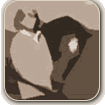Jennifer MacKenzie is an agricultural photo journalist with almost 30 year's experience. Operating from her base in Cumbria, Jennifer undertakes mainly industry-related freelance writing and photography.
Heaves Farm Rose Veal
The Mason family has developed a niche market for bull calves from their
150-cow pedigree Holstein herd.
Specialist calf rearing facilities have been built for bull calves from Heaves Farm on the Levens Hall Estate near Kendal along with calves supplied by other local dairy farmers to produce rosé veal.
Since the enterprise started three years ago, essentially utilising a by product of the dairy herd, the demand for rosé veal from specialist butchers and top restaurants has grown and Roger and Carole and their son Gary now supply six animals a week.
The system only works because of attention to detail and having a guaranteed market when the bulls are finished at eight months old. Because there is demand for the majority of the carcase, margins are worthwhile.
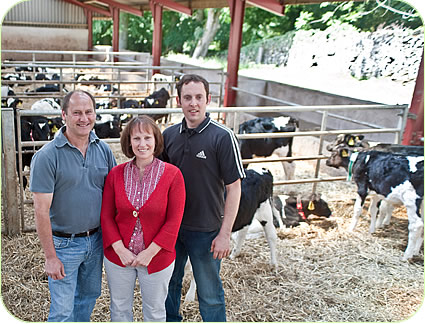 |
| Roger and Carole Mason and son Gary |
The Mason family has farmed in the Levens area for more than 100 years and Gary is the fifth generation to farm on the Levens Hall Estate. Eldest son Neil, is a freelance brand strategy consultant in Manchester and he has been heavily involved in the marketing of the new venture, while daughter Lisa is a physiotherapist.
Replacements have always been bred on the 270 acre farm and bull calves were sold off the farm.
But it was when a local auctioneer was looking for some black and white calves to kill out at around 100kg for rosé veal, that the Masons thought about selling their own veal off the farm to wholesalers.
“We had always kept the bull calves but we realised that we would have to find a specialist market rather. We also had to a have enough calves in the system to have a guaranteed continuity of supply,” said Roger.
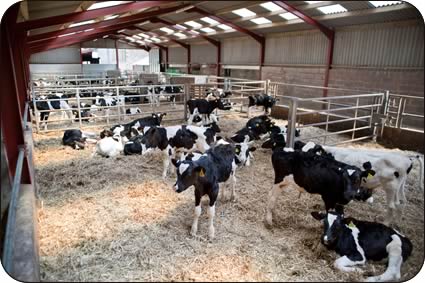 |
| Calves are housed in an airy, purpose built shed which can accommodate up to 140 head |
Not only did they set about finding markets for the new product - Heaves Farm Veal - but they also worked with the RPA in regulating the production standards for rosé veal and they are only a handful of UK finishers producing the veal at the required age limit - up to eight months old.
Rosé veal is similar to beef but with a smoother texture, a richer taste and is lower in fat and cholesterol. While it is available in the same cuts as beef - steak, roasting joints, escalopes, mince and casserole meat - there are additional specialities such as liver and shin (Osso Bucco).
Unlike white veal where the calf is reared to 16 to 20 weeks old entirely on milk, the rosé veal is fed milk replacer to a maximum of seven litres a day until they are eight weeks old by which time they have been weaned onto a calf pellet. They are straw bedded until they are eight months old.
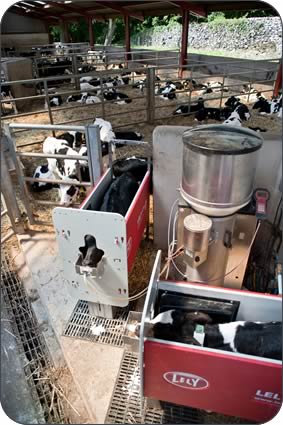 |
Rosé veal is much pinker in colour as a result of the varied diet, unlike the strict milk diet of the white veal method.
With around 60 bull calves from their own herd going into the system, the Masons also buy from up to 10 other dairy producers in Cumbria giving the product local provenance, paying above market price for the calves.
“We want a decent black and white calf and it must have had its colostrum,” said Gary. “We test all the calves for colostrum and we also blood test them. We give the results back to the dairy farmers which can in turn help them with the health of the heifer replacements they are rearing which all helps foster good relationships.”
The calves arrive at two to three weeks old, all on a Wednesday, and they are housed in an airy, purpose built shed which can accommodate up to 140 head.
The calves are moved down the shed to avoid contact between new calves and older animals. Five stalls have access to a calf rearing machine which weans the calves onto the pellets by the time they are half way down the shed, recording computerised data on the calves which each wear neck transponders.
By three to four months old they are transferred from the rearing shed to the finishing shed when by eight months old they achieve a carcase weight of between 130kg and 150kg.
“Rosé veal is 100 per cent welfare friendly in the way the animals are reared,” said Roger. “The world is short of food and it’s such a waste for these bull calves not to come into the food chain.
“But it’s not a huge market - but it has to be guaranteed as there are no other viable outlets for these type of animals that’s why the calves are usually killed. We have a large amount of capital tied up in the new building and calf feeders as well as the feed so we need to protect our end market.”
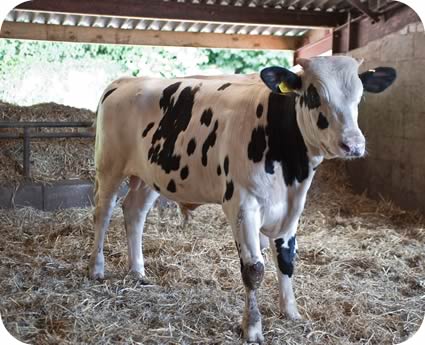 |
| At eight months old the bulls achieve a carcase weight of between 130kg and 150kg |
The aim is to increase sales to between eight and 10 animals a week. The Masons work with three main wholesalers, including two in Cumbria, and their rosé veal has been sold in Harrods and on the menu in Michelin starred Tom Aikens’, Toms Kitchen in Chelsea and other top restaurants throughout the UK. They also sell 10kg boxes of veal direct from the farm and via their website.
The quality and taste of rosé veal is being publicly acknowledged by some of the UK’s top chefs and restaurateurs, including Hugh Fearnley-Whittingstall and Gordon Ramsey.
Health and welfare is a priority at Heaves Farm where all animals are routinely checked every fortnight by the local vet.
The cows are milked twice a day in a modern parlour which is part of a purpose built dairy unit which includes housing for 220 dairy cows and followers.
The herd products more than 1.3 million litres of milk a year which is supplied to Dale Farm Dairies in Kendal to be made into yoghurts, cheeses and desserts.
The farm, which also has a flock of 150 Mule sheep producing early prime lambs, received the 2008 award made by the Westmorland Agricultural Society for the best managed farm, recognising the quality of its stock, crops and grassland.
Heaves Farm is part of DEFRA’s Environmental Stewardship Scheme, carefully managing the land to maximise grass production and nutrition as well as looking after hedgerows, stone walls and local wildlife.
The farm boasts a bespoke self designed system to collect rainwater from the large area of roofs which is reused in the farm buildings and has recently had its own bore-hole well drilled 186m down into the limestone below the farm, providing natural spring water for the animals to drink.
